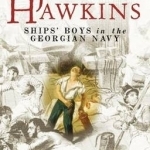Miguel Covarrubias (143 KP) rated We Cast a Shadow in Books
Apr 30, 2019
So many don't realize the struggle of a parent trying to find one's identity amidst the current racism. Especially for Latin-x people during the reign of Trump and Trumpian ideals within the United Sates. We are being equated with animals and the worst of the worst that share our heritage. Yes, there are some bad people out there, but there are bad people of every skin color or heritage. I want so much to protect my son, and ensure that he gets every opportunity without the problems that this evil presents currently.
This is a near future story, that says so much about who we are today. Especially for those of us who are Multi-Racial. Many of us aren't even accepted in either societies that are full heritage-ly made up. This book was not without it's issues, but it is a very important story. It is a great read for those trying to understand the struggle of Multi-Racial Parents and children. Highly recommend.

Household Fengshui: a manual for choosing and decorating house
Lifestyle
App
We all want intelligent offspring, wealth, successful careers, good health, family harmony, filial...

Frontline Commando
Games and Entertainment
App
ONE MAN. ONE WAR. YOU ARE THE FRONTLINE COMMANDO. As the sole surviving Commando of a renegade...

The Real Jim Hawkins: Ships' Boys in the Georgian Navy
Book
Generations of readers have enjoyed the adventures of Jim Hawkins, the young protagonist and...

Kinder Tangram: Build a House
Games and Education
App
Kinder Tangram blends shape puzzles, coloring tools, stickers, and animations to create a right...

Fact & Opinion: Reading Comprehension Skills SE
Education and Games
App
** Happy Frog Apps is a Mom's Choice award winner. Our apps are featured on FunEducationalApps.com,...

Thinkrolls: Kings & Queens
Education and Games
App
Thinkrolls Kings & Queens is an epic adventure of logic, physics and fun! Practice reasoning, memory...
Hazel (1853 KP) rated Bring Me Home in Books
Dec 14, 2018
To tell the truth, despite knowing that Alan Titchmarsh is a celebrity gardener and TV presenter, I was unaware that he was also a novelist; so I honestly had no idea what to expect. <i>Bring Me Home</i>, Titchmarsh’s latest piece of fiction, is located in the Scottish Highlands and tells the life story of Charlie Stuart who lives in Castle Sodhail.
The opening chapter is set in the year 2000 at the end of a summer party hosted by Charlie in the castle grounds. We find out that Charlie needs to tell his children about something he has done and he is worried about their reactions. I immediately assumed this would be something along the lines of financial difficulties: someone who owns a castle must be in need of a vast amount of money. This assumption, however, was way off the mark.
The subsequent chapters tell of Charlie’s past, beginning in 1960, when he was ten years old, and progressing chronologically until 2000 where we, once again, meet with the familiar opening scene. Throughout these sections we read of Egglestone Academy in Inverness, which he attended with his friend, Gordon Mackenzie; we learn of his mother’s death and how he copes with his new, typically not very nice, stepmother. He marries a childhood friend, Eleanor – this happened a bit too suddenly in my view – and this is where things begin to transpire; events which could be what Charlie wants to speak to his children about.
To be frank, I sometimes found the narrative a little boring, particularly throughout the first half in which, I felt, nothing particularly significant occurred. The latter half was better with more events taking place, which made me wonder how things would be resolved. There was one part of the storyline which, although keeps Gordon in the book as an important character, felt rather pointless particularly as it had nothing to do with the final few chapters.
One thing I did like about this book was that Titchmarsh and included relevant quotes from various sources at the beginning of each chapter. These always related in some way to what that particular chapter was about. As I have not read any other books by the author, I do not know if this was a one off idea or whether he always does this, but it reminded me of the character Gordon Mackenzie who has a literary quote for every occasion.
Overall I did not think much of this novel but it was not terrible. The writing style was easy to read and understand but I personally thought the storyline needed to be stronger.
Hazel (1853 KP) rated Capturing Jasmina (India's Street Kids #1) in Books
Dec 17, 2018
Kimberly Rae draws attention to the ongoing trafficking of children in India in her young adult novel <i>Capturing Jasmina</i>. Jasmina was only ten when her father sold both her and her brother Samir to a man promising safety and good education. In reality the siblings end up in a sweatshop slaving over clothes to be sold in America. After three years they manage to escape only to be trafficked a second time. Eventually Jasmina and Samir are separated and Jasmina becomes a street kid.
Whilst living on the streets Jasmina encounters a Christian missionary, Asha, rescuing women from brothels by either offering them a safe place to live or at the very least spiritually, by teaching them about God and Jesus. Intrigued Jasmina follows Asha who then offers to help her too. After having her childhood robbed from her, it seems like Jasmina, with the help of those who trust in God, will get back on her feet again.
Despite being a short novel, Rae paints a contrasting image to what the western world is used to. Jasmina finds the concept of a simple toilet baffling. It is not until you hear or see what is happening to innocent people in other parts of the world that you realize there are so many things in life you take for granted.
<i>Capturing Jasmina</i> emphasizes how difficult it is to escape once trafficked. In these situations people belong to everyone but themselves. They have no freedom and running away can cause more problems than it solves. The novel also shows what Christians can do to help. Although no one can completely solve the problems, the tiniest piece of aid they can provide is a step in the right direction.
It was slightly disappointing that we do not find out what happened to Samir once he was separated from his sister. Jasmina’s first person narrative makes it clear that what she wants most is to be reunited with her family. In a way, although there is a positive ending, not yet finding her brother makes it clear that there cannot always be happy endings. It is not possible to save everyone.
Written from a young teenagers point of view makes this book suitable for ages twelve and older. Christians will appreciate the biblical references however there is not too much religion for non-believers or those of other religions to get offended by.

